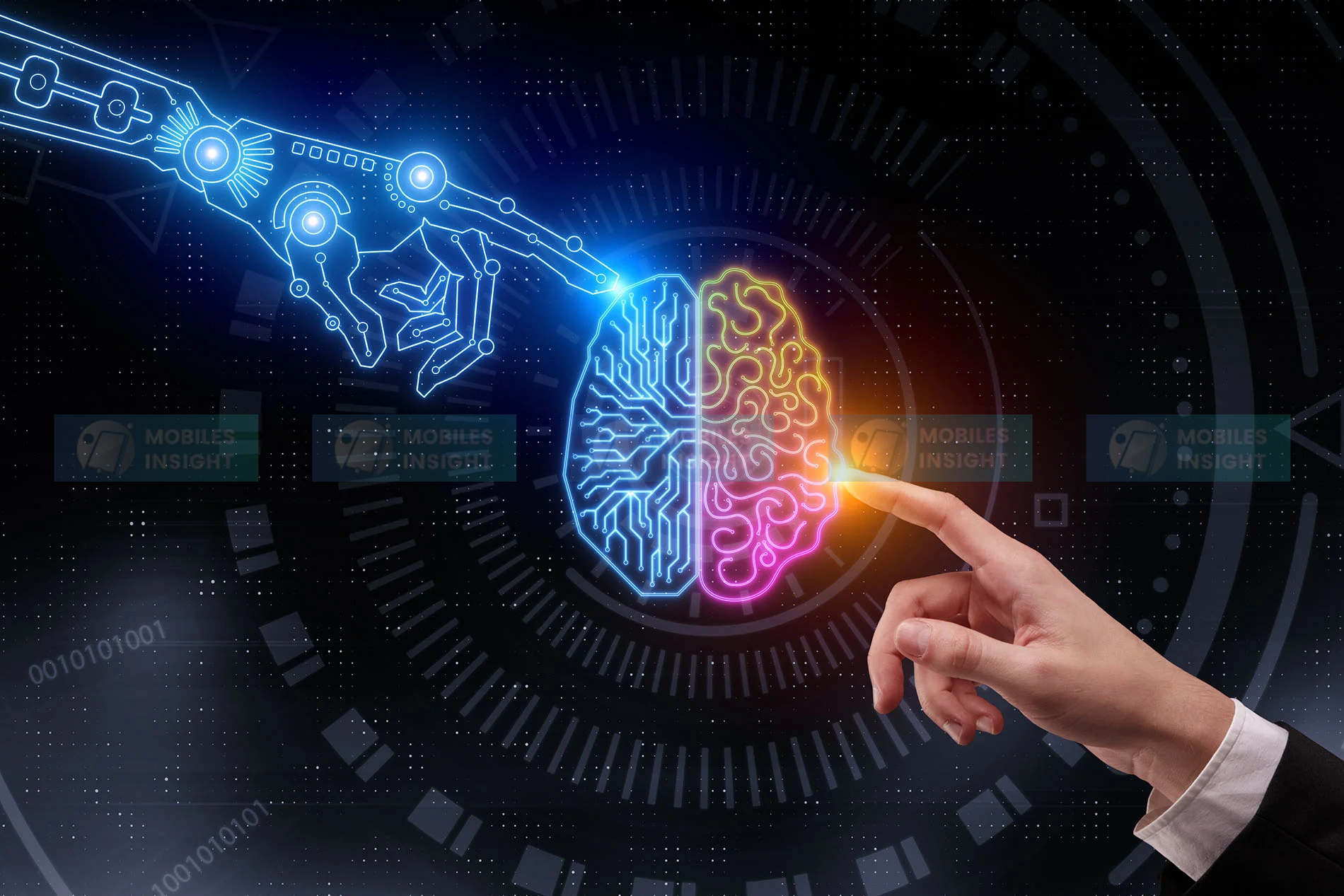
The AI Revolution Is Here: Are You Ready for the Future?
The AI revolution is no longer a distant idea. It is already changing industries, communication, and everyday life. From satellite internet to AI-powered mobile devices, innovations like Google's AI Genie 3 and OpenAI’s latest language models are transforming how we work, talk, and even think. Bangladesh, with its growing tech infrastructure and 5G networks, is ready to embrace this future. Understanding these changes now is important to stay competitive and confident in a fast-changing digital world.
AI Revolution: What Does It Mean for You?
The AI revolution means that artificial intelligence is changing many parts of our lives. Unlike older technology, AI is not just about automating tasks. It can think, make predictions, and help make smart decisions. With advances in Artificial General Intelligence, AI can now handle more than simple jobs. It can understand complex data, communicate in natural language, and even predict what people need.
In Bangladesh, this change is very noticeable. Cities like Dhaka and Chittagong are using faster internet, including Wi-Fi 7 and 5G networks. These technologies help people use cloud-based AI services and satellite internet like Starlink, making it easier to stay connected and access data even in areas where the internet used to be slow or limited.
How Will AI Transform Everyday Life in Bangladesh?
Many people think AI is only for tech companies or research labs. That is not true anymore. Today, AI is part of everyday life:
- Smartphones: Modern phones, from high-end Android models to iPhones, now have AI features. Apps like Google’s AI Genie 3 and Perplexity AI help users manage schedules, translate languages, and save battery.
- Healthcare: AI helps doctors with diagnosis, predicting diseases, and monitoring patients, making better healthcare available to more people.
- Education: AI platforms create smart learning experiences, helping students in Dhaka and other places learn at their own speed.
These examples show that the AI revolution is real and is changing daily life, even in countries like Bangladesh.
Satellite Connectivity and the Global AI Ecosystem
Satellite internet is very important for AI applications. Services like Starlink provide fast and reliable internet everywhere, even in rural areas of Bangladesh. This allows AI tools to work smoothly, whether it’s cloud computing for businesses or real-time updates on smart devices.
For mobile phones, AI depends on this internet connection to do advanced tasks. With satellites offering fast, low-latency internet, phones that can run smart AI apps without relying solely on their own processing power. This makes devices faster, smarter, and more responsive.
The Role of AI in Modern Smartphones
Modern smartphones are no longer just devices for calling or texting. They are smart assistants. AI in phones has brought amazing changes:
- Camera Improvements: AI automatically adjusts settings for low light, motion, or portrait photos, making your pictures look professional.
- Voice Assistants: AI helpers like AI Genie 3 give useful answers, manage your tasks, and even suggest solutions before you ask.
- Personalized Experience: Phones learn how you use them to save battery, suggest apps, and improve performance without you doing anything.
With AI, these phones turn your ideas into actions. For users in Bangladesh, this means enjoying a truly global and smart experience.
AI-Powered Business Transformation
AI is changing how businesses work all over the world. In Bangladesh, companies are starting to use AI to grow smartly:
- Marketing: AI looks at how customers behave, predicts trends, and automates campaigns to get better results.
- Finance: Banks use AI to find fraud, check credit scores, and give personalized financial advice.
- E-commerce: AI recommends products to customers in real-time, helping increase sales and make users happy.
With fast 5G networks and Wi-Fi 7, AI platforms work smoothly even when demand is high. Companies that use these tools are not just surviving, they are doing very well.
Perplexity AI and OpenAI’s New Language Models
Two of the most important innovations in AI today are Perplexity AI and OpenAI’s new language models. These tools can study huge amounts of data, give natural-sounding answers, and even think through complex problems. For people in Bangladesh, this means:
- Research Help: Students, researchers, and professionals can get quick and accurate information anytime.
- Language Support: AI helps overcome language barriers, giving access to knowledge in both Bangla and English.
- Better Productivity: AI tools handle repetitive tasks, so people can focus on creative and important work.
Using these AI models in everyday apps, smartphones, and cloud services makes it easier for everyone to use AI in daily life and work.
Ethical Considerations in the AI Era
While AI can bring huge benefits, we must not ignore ethical concerns. Problems like privacy, data security, and biased algorithms need attention. Bangladesh, with its growing digital economy, should have strong rules to make sure AI helps society without breaking ethical standards. AI developers and users should focus on:
- Clear rules for how data is used.
- Fair and unbiased AI systems.
- Safe handling of cloud and satellite data.
Knowing these points helps people and companies use AI responsibly, making sure it is safe and useful in the long run.
AI and the Future of Connectivity
The combination of AI and the latest internet technology is changing everything. Wi-Fi 7, along with 5G networks, lets devices, cloud servers, and AI systems communicate instantly. This makes real-time analytics, AR/VR apps, and automated systems work smoothly.
For mobile users in Bangladesh, this means AI-powered apps will work faster with very little delay. Cloud-based AI, along with smart features on your phone, gives a more responsive and personalized experience, making both work and entertainment better.
The AI Revolution and the Job Market Evolution
Many people worry that AI will take away human jobs. But the truth is more balanced. AI can do repetitive tasks, but it also creates new opportunities:
- AI Specialists: There is a growing need for AI engineers, analysts, and data scientists.
- AI-Integrated Jobs: Professionals in marketing, healthcare, and logistics now need to understand AI.
- Entrepreneurship: AI helps startups grow and innovate even with limited resources.
Bangladesh has a young and tech-savvy workforce, which can take advantage of these opportunities. Learning AI skills today will help people stay relevant and succeed in the future.
Preparing for the AI Future
To stay ahead in the AI revolution, individuals and organizations should have a proactive mindset:
- Continuous Learning: Join AI and data science courses and keep up with the latest technology trends.
- Tech Integration: Use AI tools to improve personal and business productivity.
- Network Adoption: Take advantage of satellite internet and Wi-Fi 7 for smooth and fast access.
- Ethical Practice: Follow rules for responsible and safe use of AI.
Being prepared is not just about having access, it’s about understanding AI’s potential and using it smartly.
The Role of Phones in AI Integration
Smartphones are the key to the AI revolution. They help in daily work and connecting with the world. Modern phones can:
- Run smart AI apps like AI Genie 3.
- Use cloud AI with fast 5G and Starlink internet.
- Translate languages in real time and give smart predictions.
- Improved tools for photography, video, and content creation.
By connecting human ideas with AI, these phones let users get useful insights anytime, anywhere.
Future Trends: What to Expect Next
he AI revolution is moving fast, and new trends will change our digital life:
- Artificial General Intelligence: AI systems that can think like humans will appear, making automation smarter.
- AI in IoT: Smart homes, vehicles, and industries will use AI for predicting needs and adjust automatically.
- Global AI Collaboration: Cloud platforms and satellite connections will let people and machines work together in real time across countries.
- Localized AI Services: Bangla AI models and regional features will make AI easy for everyone to use.
These trends show that AI is not just one invention; it is a growing system that affects every part of our life.
Final Thoughts
The AI revolution is not coming, it is already here. From fast internet and satellite networks to smart phones and advanced AI models, the future is happening now. Bangladesh is in a good position to use this change because of its growing digital networks and tech-smart people. Using AI today means:
- Knowing about the latest technology trends.
- Adding AI to our daily tools and devices.
- Follow ethical and responsible AI practices.
- Preparing workers for jobs that use AI.
Those who start now will not just survive, they will lead. The AI revolution is not a dream of the future, it is happening today, and being ready is the key to success.
Popular Phone Reviews

Samsung Galaxy A70 Review: Features, Performance, and Value Insights

Apple iPhone 16 Pro Max Review: Features, Performance, and Value Insights

Apple iPhone 12 Pro Max Review: Features, Performance, and Value Insights

Xiaomi Redmi 12 Review: Features, Performance, and Value Insights






